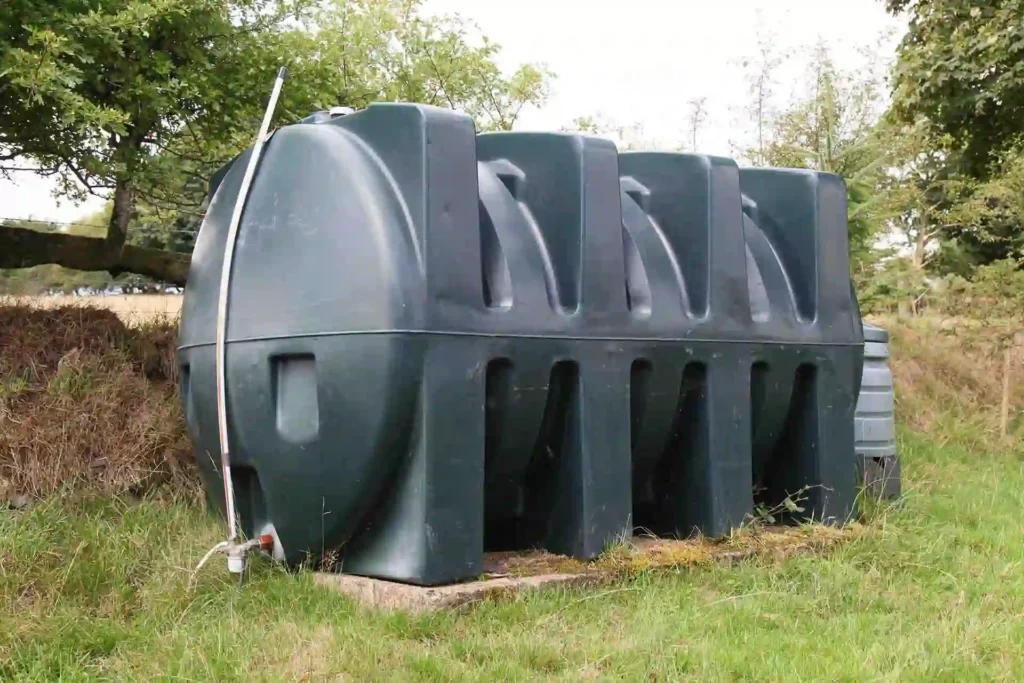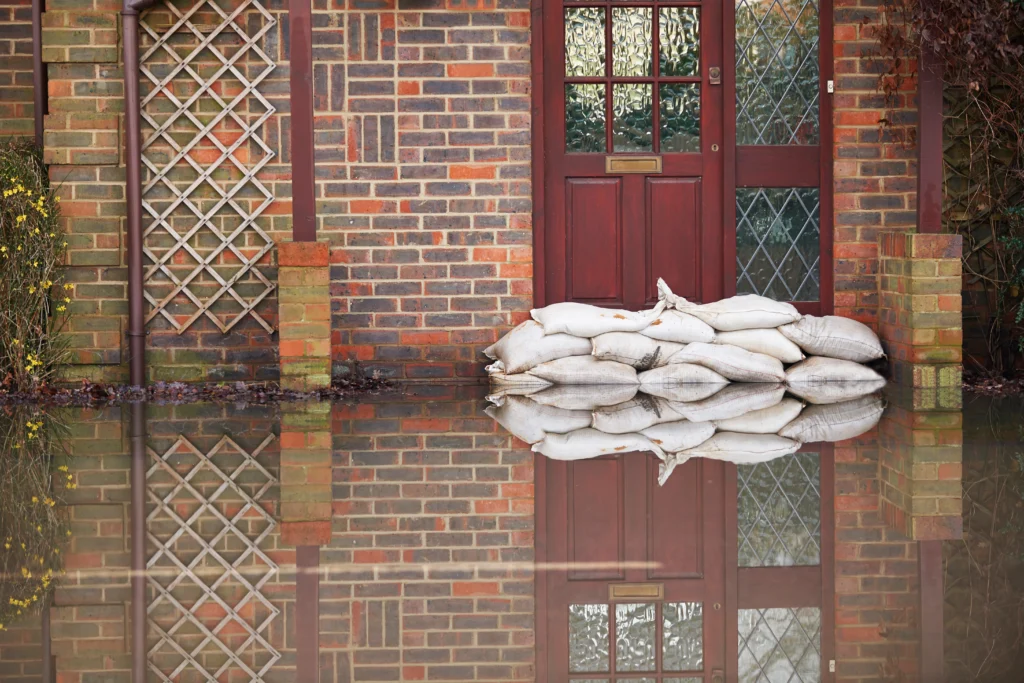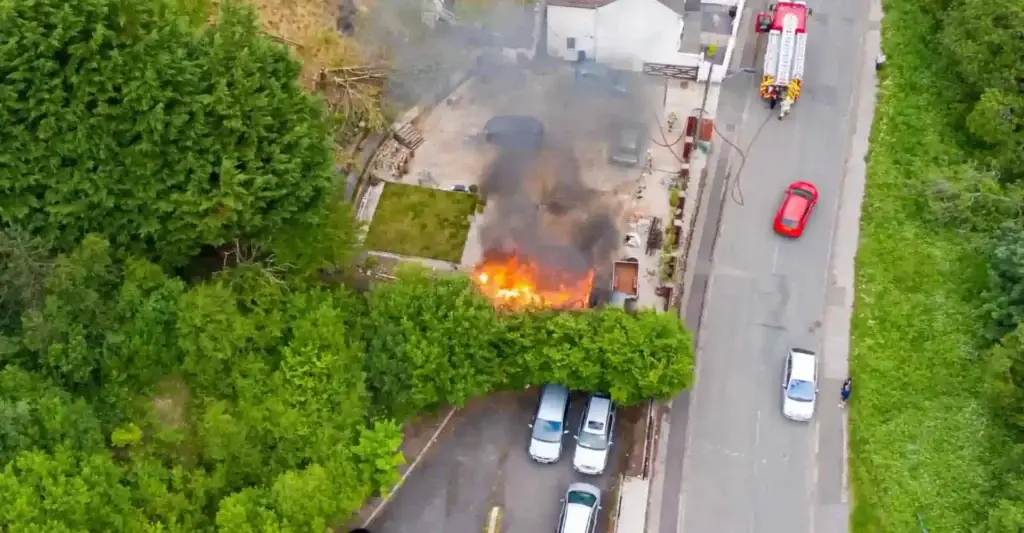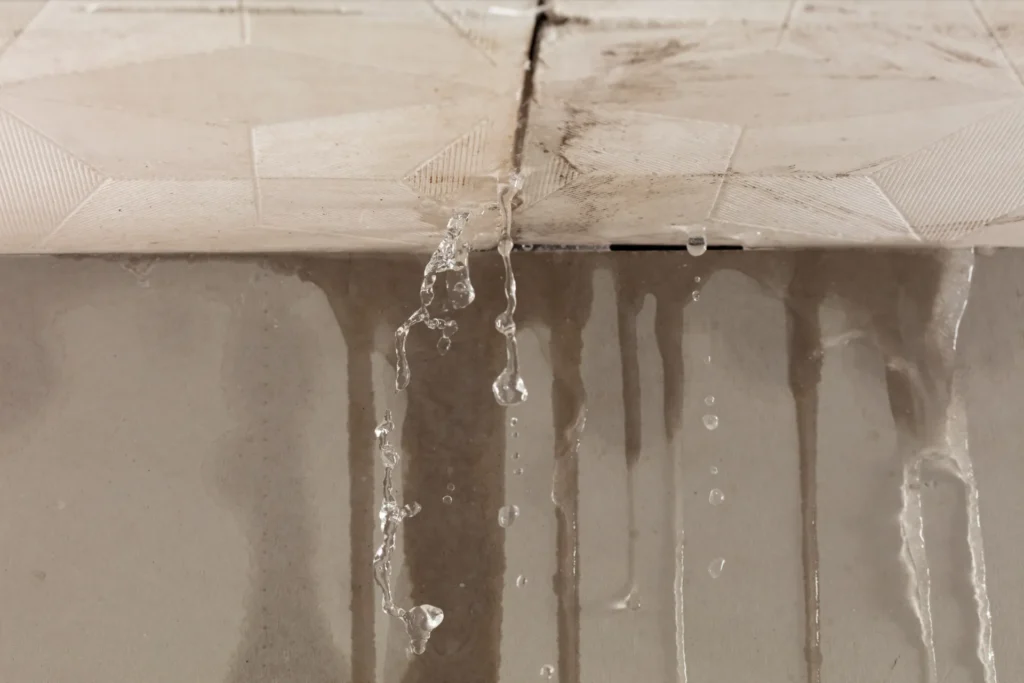An oil spill in a home can be a messy and stressful event, often caused by leaking heating oil tanks, vehicle leaks in a garage, or even cooking mishaps. Understanding the potential causes is the first step in preventing a spill from ever happening. If a spill does occur, knowing the immediate steps to take can prevent further damage and make the spill cleanup process much easier.
Skip to:
The most common causes of domestic oil spill in the UK
Common causes of domestic oil spills
An unexpected domestic oil spill can happen for several reasons. Here are the most common causes:
- Faulty heating oil tanks: The most frequent cause of home heating oil spills is a degraded tank. Over time, rust can form on the tank’s interior, leading to cracks or pinhole leaks.
- Improper fuel delivery: Overfilling a tank during a delivery can cause a spill. It is crucial to use a reputable and professional fuel delivery service.
- Accidental damage: A vehicle hitting a tank, a landscaper’s equipment puncturing a line, or a falling tree branch can compromise the integrity of your oil tank.
- Heating system leaks: Leaks can occur in the pipes or connections leading from the tank to the furnace or boiler. These are often slow, undetected drips that accumulate over time.
- Motor oil and vehicle spills: Spills in a garage or driveway are common. Old, leaking vehicles or careless oil changes can leave behind significant stains and environmental hazards.
- Cooking oil spills: While not as toxic as motor oil, large cooking oil spills in the kitchen can create a slip hazard and require specialist cleaning to remove the grease and odour completely.
What to do immediately after an oil spill
If you discover an oil spill, it’s essential to act quickly to minimise the damage and contain the spread.
- Ensure your safety: If the spill is large or has strong fumes, open windows and doors for ventilation. Do not use electrical appliances or light a match.
- Contain the spill: For small spills, use old rags, paper towels, or an absorbent material like cat litter to soak up the oil. For larger spills, create a barrier using sand or soil to prevent the oil from spreading to drains or waterways.
- Stop the source (if safe): If the leak is from a clear source like a pipe, and it is safe to do so, try to stop the flow. However, do not attempt to repair the tank or system yourself.
- Call a professional: Do not attempt to clean up a large spill yourself. Oil spills can be hazardous and require specialised equipment and expertise for proper remediation and disposal. Contact a professional cleanup company immediately.
Prevention is key
By taking these simple steps, you can significantly reduce the risk of a spill and protect your property and the environment.
Regular Inspections: Have your heating oil tank and system inspected annually by a professional to catch potential issues early. This helps you identify and fix minor problems before they turn into costly, major spills. It will also provide you with insights into how oil should be stored in the UK.
Install a Spill Alarm: Consider a tank alarm that can alert you to overfilling during a delivery. This simple device gives you peace of mind by preventing spills from careless or accidental overfilling.
Proper Disposal: Always dispose of old motor oil and cooking oil correctly. Do not pour them down drains or on the ground. Correct disposal prevents environmental contamination and avoids potential legal and financial penalties.

Why choose Ideal Response for your cleanup needs
When a domestic oil spill happens, you need a quick, reliable, and professional solution. That’s where Ideal Response’s 24/7 UK-wide service and specialist expertise come in.
-
Our Expertise in Action: Our teams are highly trained in handling various types of domestic and commercial oil spills across the UK. We use advanced, environmentally friendly technologies like high-power vacuum extractors and specialised absorbents to ensure a thorough and compliant cleanup. We understand the specific challenges of spills, from small leaks in a basement to larger-scale contamination in a garden, and we have the right tools and knowledge to address them.
-
The Benefits of Hiring a UK Expert: Attempting a DIY cleanup can be dangerous and ineffective, potentially leading to further environmental damage and legal issues. Under UK law, you may be required to clean up a spill under legislation such as the Environmental Protection Act 1990. Hiring an expert like Ideal Response provides you with:
-
Safety: We have the personal protective equipment (PPE) and training to handle hazardous materials safely.
-
Compliance: We ensure all oil and contaminated materials are disposed of in accordance with UK environmental regulations.
-
Efficiency: We can remove all traces of the spill, including odours, and return your property to a safe, pre-spill condition much faster than an amateur could.
-
Peace of Mind: You can be confident that the problem is fully resolved, protecting your family and your property from long-term damage.
-
Ideal Response has years of hands on experience helping UK property owners recover from emergency spills, fast.
Conclusion
By understanding the common causes of home oil spills and implementing preventative measures, you can protect your property and the environment. If a spill does occur, the most crucial step is to call a professional for a safe and effective cleanup.
Don’t wait for a small leak to become a major problem. If you’ve discovered an oil spill or are concerned about a potential leak, call our 24/7 emergency response team on 01622 926 505 for immediate assistance and professional guidance.
Protect your property, family, and the environment. Contact Ideal Response today.
Need to speak to a specialist urgently? Call 01622 926 505
What causes an oil spill in your home: Frequently asked questions
What are the early warning signs of an oil tank leak?
Look for a strong smell of oil inside or outside your home, a sudden increase in your fuel usage without a change in weather, or the appearance of black stains and dead grass or plants around your tank.
What is the UK law on reporting an oil spill?
Under UK law, you have a responsibility to clean up any pollution you cause. If a spill could affect watercourses, drains, or is considered a significant contamination, you must report it to the Environment Agency (or SEPA in Scotland, Natural Resources Wales in Wales) immediately to avoid legal penalties and ensure proper remediation.
Will my home insurance cover the cost of an oil spill cleanup?
It’s crucial to check your policy. While many home insurance policies cover the loss of the oil itself, they may not cover the extensive costs of cleanup and environmental remediation. Always inform your insurer immediately after discovering a leak.
Can I clean up a heating oil spill myself?
For a very minor, contained spill, you can use absorbent materials. However, you should never use a hose or detergent to wash oil away. For any significant spill, especially if it has soaked into the ground, you should not attempt to clean it yourself. Professional cleanup is required to ensure all contaminants are safely and legally removed, preventing long-term damage and health risks.
What is "bunding" and is it required for my oil tank?
A bund is a secondary containment area (a tray or wall) designed to hold a spill from the primary tank. While not always legally required for smaller tanks, it is considered a best practice and can prevent a costly environmental disaster. You should check with a professional installer or your local council for specific regulations.

Andy Garside - Operations Director
Andy brings over 30 years of extensive experience in disaster response and hazardous waste management. With a career deeply rooted in environmental and pollution incident response, Andy possesses thorough technical knowledge of hazardous materials and waste industry operations. Andy ensures the highest standards of safety, compliance, and environmental responsibility across a wide range of complex remediation and decontamination projects. For Andy, operational excellence means not just protecting assets, but also safeguarding public health and the environment, even in the most high-pressure situations.





















